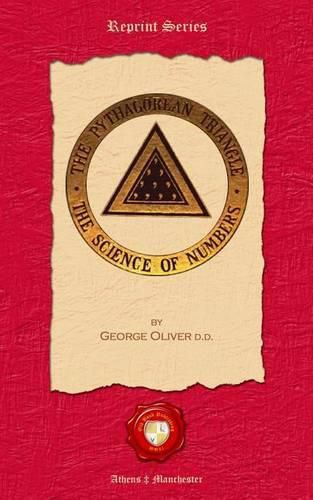Readings Newsletter
Become a Readings Member to make your shopping experience even easier.
Sign in or sign up for free!
You’re not far away from qualifying for FREE standard shipping within Australia
You’ve qualified for FREE standard shipping within Australia
The cart is loading…






A large portion of the Egyptian philosophy and religion seems to have been constructed almost wholly upon the science of numbers; and we are assured by Kircher that everything in nature was explained on this principle alone. The Pythagoreans had so high an opinion of it, that they considered it to be the origin of all things, and thought knowledge of numbers to be equivalent to knowledge of God. The founder of the sect received his instructions in this science from the Egyptian priests; who taught him that, while the monad possesses the nature of the efficient cause, the dyad is merely a passive matter. A point corresponds with the monad, both being indivisible; and as the monad is the principle of numbers, so is the point of lines. A line corresponds with the dyad, both being considered by transition. In expressing their opinion of the Regular or Platonic bodies, the followers of Pythagoras argued that the world was made by God in thought, and not in time; and that He commenced His work in fire and the fifth element; for there are five figures of solid bodies which are termed mathematical. Earth was made of a cube, Fire of a pyramid, Air of an octahedron, Water of an icosahedrons, the Sphere of the Universe of a Dodecahedron. And the combinations of the monad, as the principle of all things, are thus deduced. From the monad came the indeterminate dyad; from them came numbers; from numbers, points; from points lines; from lines, superficies; from superficies, solids; from these, solid bodies whose elements are four, viz., fire, water, air, earth; of all of which, under various transmutations, the world consists.
$9.00 standard shipping within Australia
FREE standard shipping within Australia for orders over $100.00
Express & International shipping calculated at checkout
A large portion of the Egyptian philosophy and religion seems to have been constructed almost wholly upon the science of numbers; and we are assured by Kircher that everything in nature was explained on this principle alone. The Pythagoreans had so high an opinion of it, that they considered it to be the origin of all things, and thought knowledge of numbers to be equivalent to knowledge of God. The founder of the sect received his instructions in this science from the Egyptian priests; who taught him that, while the monad possesses the nature of the efficient cause, the dyad is merely a passive matter. A point corresponds with the monad, both being indivisible; and as the monad is the principle of numbers, so is the point of lines. A line corresponds with the dyad, both being considered by transition. In expressing their opinion of the Regular or Platonic bodies, the followers of Pythagoras argued that the world was made by God in thought, and not in time; and that He commenced His work in fire and the fifth element; for there are five figures of solid bodies which are termed mathematical. Earth was made of a cube, Fire of a pyramid, Air of an octahedron, Water of an icosahedrons, the Sphere of the Universe of a Dodecahedron. And the combinations of the monad, as the principle of all things, are thus deduced. From the monad came the indeterminate dyad; from them came numbers; from numbers, points; from points lines; from lines, superficies; from superficies, solids; from these, solid bodies whose elements are four, viz., fire, water, air, earth; of all of which, under various transmutations, the world consists.